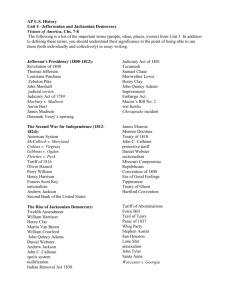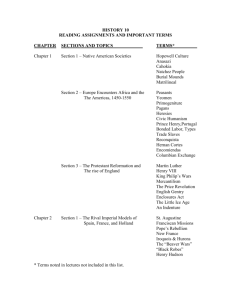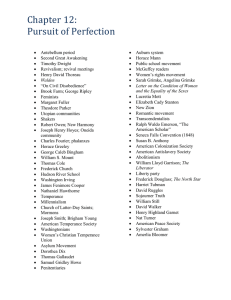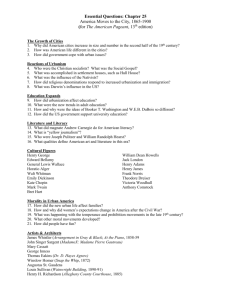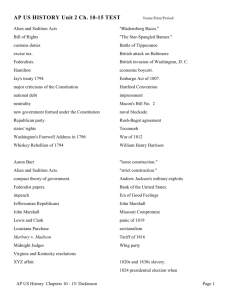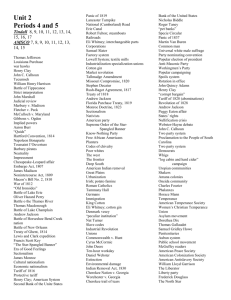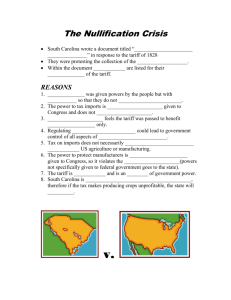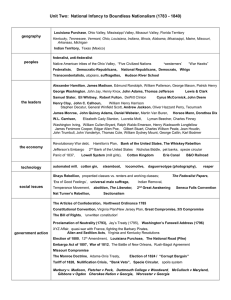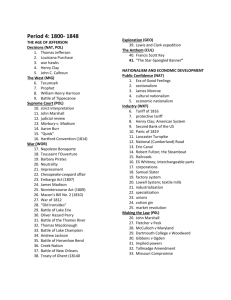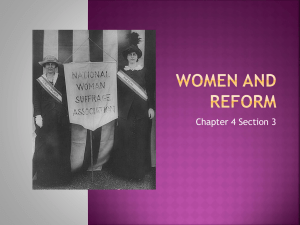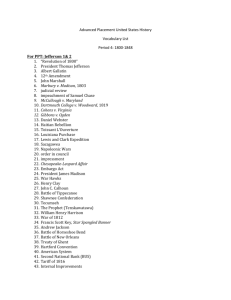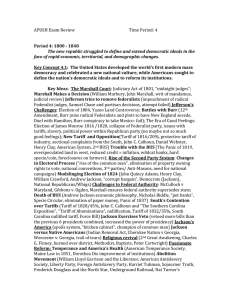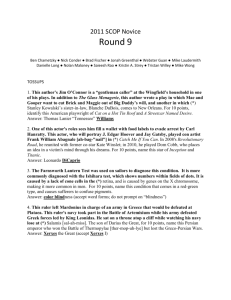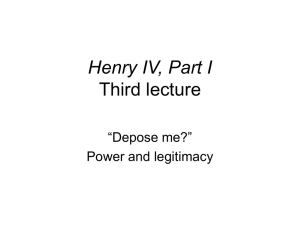Unit 3: Jeffersonian and Jacksonian Democracy chapters 11
advertisement
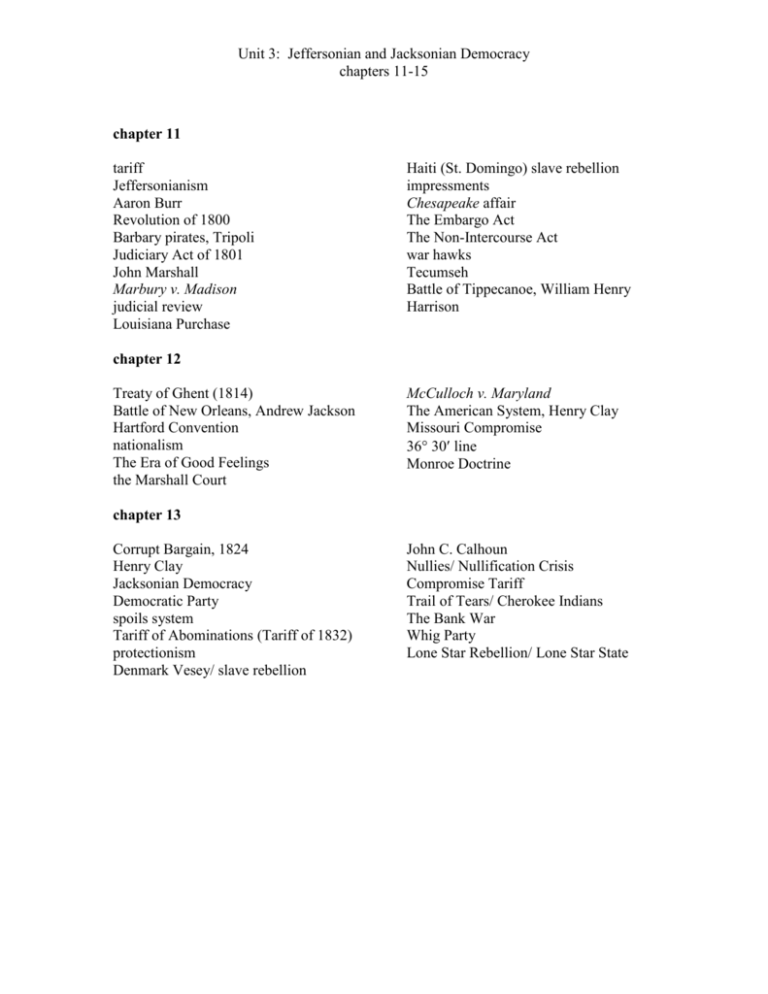
Unit 3: Jeffersonian and Jacksonian Democracy chapters 11-15 chapter 11 tariff Jeffersonianism Aaron Burr Revolution of 1800 Barbary pirates, Tripoli Judiciary Act of 1801 John Marshall Marbury v. Madison judicial review Louisiana Purchase Haiti (St. Domingo) slave rebellion impressments Chesapeake affair The Embargo Act The Non-Intercourse Act war hawks Tecumseh Battle of Tippecanoe, William Henry Harrison chapter 12 Treaty of Ghent (1814) Battle of New Orleans, Andrew Jackson Hartford Convention nationalism The Era of Good Feelings the Marshall Court McCulloch v. Maryland The American System, Henry Clay Missouri Compromise 36 30 line Monroe Doctrine chapter 13 Corrupt Bargain, 1824 Henry Clay Jacksonian Democracy Democratic Party spoils system Tariff of Abominations (Tariff of 1832) protectionism Denmark Vesey/ slave rebellion John C. Calhoun Nullies/ Nullification Crisis Compromise Tariff Trail of Tears/ Cherokee Indians The Bank War Whig Party Lone Star Rebellion/ Lone Star State chapter 14 nativist/ nativism Know-Nothing Party Industrial Revolution Eli Whitney, cotton gin interchangeable parts Samuel Morse labor union/ trade union Lowell textile mills cult of domesticity Cyrus McCormick turnpike Cumberland Road Robert Fulton Erie Canal market economy/ market revolution chapter 15 Unitarian Deism Second Great Awakening Charles Finney Mormon/ Church of Jesus Christ of the Latter Day Saints Joseph Smith Brigham Young Salt Lake City Noah Webster Dorothea Dix temperance American Temperance Society suffrage cult of domesticity Lucretia Mott Elizabeth Cady Stanton Susan B Anthony Sarah and Angelina Grimké Seneca Falls Declaration and Convention (1848) utopianism Robert Owen, New Harmony Oneida Hudson River School transcendentalism Authors: tough call. The 2008 class said there were lots of literature multiple choice questions. Do you need to know the names of all the following? What do you need to know about them? Do you learn about them in English class? You choose. At the most, I’d say, recognize the people below as American literary figures of the early and mid 1800’s developing a new American literature. Most of you probably already know that for a lot of them. Washington Irving James Fenimore Cooper Ralph Waldo Emerson Henry David Thoreau Walt Whitman Henry Wadsworth Longfellow Louisa May Alcott Emily Dickinson Edgar Allen Poe Nathaniel Hawthorne Herman Melville
